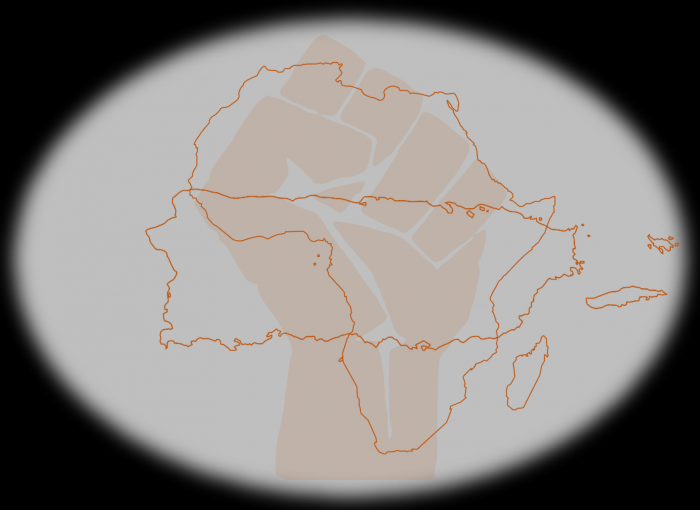As Hispanic Heritage Month draws to an end, I am confused and heartbroken by the lack of conversation around African heritage within the Hispanic/Latinx community. How can we talk about heritage – about identity inheritance – without addressing such a large part of who we are?
I, myself, am a New York-born Latina whose family came to the continental U.S. from the island of Puerto Rico. And whenever I engage in these conversations, I am always shocked by how many Puerto Ricans and other Latinos admittedly denounce their Blackness… and by how many non-Latino Black brothers and sisters, denounce Latinos. For a while, I would constantly ask myself , “Dinorah, what are you missing, here?”
It took me a moment to make sense of the divide, but one conversation after the other brought the problem more and more into focus… We have been grossly miseducated[1] – the victims of a deliberate and successful effort made by both formal and informal systems of education (media, family, school), to mis-educate us about race. I’ve heard it argued that our miseducation was not an intentional act of white supremacy… but what then, am I to make of the many things they “forgot to mention” about my island’s history and its relevance to race relations in the United States? For instance:
Africans in Puerto Rico
When teaching me the history of slavery, they made it seem like it never impacted my family. They “forgot to mention” that an estimated 31, 320 slaves disembarked in Puerto Rico between 1650 and 1850. That’s almost 5,000 more than the 25,648 that disembarked in the U.S. Gulf states (Florida, Alabama, Mississippi, Louisiana and Texas combined).[2]
They “forgot to mention” that according to the 1834 “Royal Census of Puerto Rico,” almost half of the people on the island were people of color (enslaved Africans, “coloured” freemen and people of mixed ethnicity).[3] And while they taught me that slavery went on to be abolished in the U.S. in 1865, they “forgot to mention” that the people of Puerto Rico had to wait until 1873 for the same (legal) freedom.
Racism in Puerto Rico
They “forgot to mention” that in the mid-1800s, the government of Puerto Rico instituted “El Bando Contra La Raza Africana” (The Band Against the African Race) – laws meant to deal with “la ferocidad estupida de la raza Africana,” (the ferocious stupidity of the African race).[4] Basically, under these laws of white supremacy, Blacks in P.R. were treated as inferior. Any offense that involved a person of African ancestry, free or enslaved, would be tried in military court. Freed people of African ancestry who took up arms against whites, even if the aggression was deemed ‘justified,’ would have their right hands cut off and slaves who took up arms against whites, would be instantly executed.[5]
Race in the United States
They “forgot to mention” that “Latino” is not a race.[6] In the United States, it is a pan-ethnicity, under which many ethnic groups are lumped. The United States Census[7] still requires that we choose a race and the choices are: White; Black or African American; American Indian or Alaska Native; Asian; or Native Hawaiian or Other Pacific Islander. That’s it! So, keep in mind the United States’ long history of applying the “One-Drop Rule,”[8] which states that if you have even one drop of Black blood in your body, you are Black – then tell me what you would have me choose with 30% of my DNA tracing back to Africa.
Race Relations in the United States
They “forgot to mention” that many Puerto Ricans and other Latinos were already in the continental United States in large numbers, during Jim Crow, meaning that it affected us too. Puerto Rican migration to the states was facilitated after 1917 by the granting of US citizenship to all residents of the Island, but the first large migration of Puerto Ricans to the United States took place after 1945.[9] My family got to the Bronx in 1954 – at a time when fountains and doors were divided into “white” and “colored” or “white” and “nonwhite.” Where do you think we stood in that division?
Not to mention that Puerto Rico is a commonwealth, like Kentucky, Virginia, Massachusetts and Pennsylvania; and that is a is a territory, like Samoa, The Virgin Islands, Guam and the Northern Mariana Islands. Yet, they “forgot to mention” that anyone from any of these places, with any African ancestry, would likely be racialized as Black (maybe even African American)… But not us?… I guess they also forgot to explain…
What Does It All Mean?
Puerto Ricans are in fact, Latinos. How, though, does that disqualify us from also being Black? Why am I expected to choose one? Or to prove one?
I am proud to be a Latina. But I am not willing to accept the idea that that somehow makes me any less Black than many other mixed African descendants.
That’s why we need to keep these conversations going – Because I know there’s a lot to learn and I don’t pretend to have all the answers, or even all of the questions… But I do know that denying our African ancestry is a form of, a result of, and a perpetuation of White Supremacy… and I, for one, will not engage in it. The question is, will you?
References:
[1] Woodson, Carter Godwin, 1875-1950. (1990). The mis-education of the Negro. Trenton, N.J. :Africa World Press
[2] Various, C. (2015). Trans-Atlantic Slave Trade – Estimates. Retrieved June 24, 2020, from https://www.slavevoyages.org/assessment/estimates.
[3] Minority Rights Group International. (n.d.). Afro-Puerto Ricans. Retrieved June 24, 2020, from https://minorityrights.org/minorities/afro-puerto-ricans/
[4] Hostos, E. M., & Maldonado-Denis, M. (1982). Moral social. Sociologia. Caracas, Venezuela: Biblioteca Ayacucho.
[5] Baralt, G. A. (2015). Slave revolts in Puerto Rico: Conspiracies and uprisings, 1795-1873. Princeton, NJ: Markus Wiener.
[6] Nieves, D. (2018, April 13). Her Voice: Latina Is Not The New Black… Retrieved June 28, 2020, from https://www.xonecole.com/latina-is-not-the-new-black-weve-been-here/
[7] US Census Bureau. (2020, April 22). About Race. Retrieved May 31, 2020, from https://www.census.gov/topics/population/race/about.html#
[8] Davis, F. J. (1991). Who is black? One nation’s definition. University Park: Pennsylvania State University Press.
[9] Puerto Rican Emigration: Why the 1950s? (n.d.). Retrieved June 28, 2020, from http://lcw.lehman.edu/lehman/depts/latinampuertorican/latinoweb/PuertoRico/1950s.htm


 Share on bsky
Share on bsky





Read 0 comments and reply